Weaving together the strands of a full opera in a concert setting has to be one of the biggest challenges around for presenters and audiences. Over the past year the Washington area has seen such attempts in lesser-known operas by Rossini and Wagner with varying results. Nothing quite matches the job that the Russian Chamber Art Society pulled off last Thursday evening in a concert presentation of Tchaikovsky’s Eugene Onegin for sheer genuineness of purpose and immediacy of performance impact for the audience.
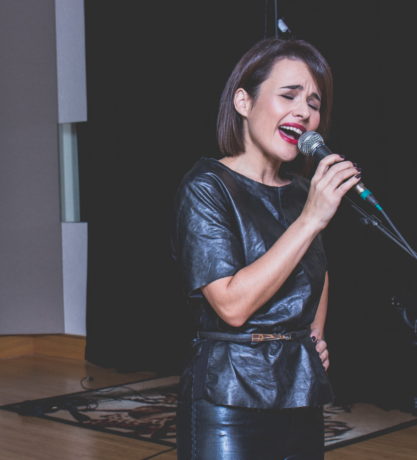
Interestingly, the RCAS almost undersold the project. While the Society billed the evening as a gala, it titled the musical program merely “highlights” from Tchaikovsky’s 1879 opera based on Alexander Pushkin’s Eugene Onegin, an 1833 novel-in-verse that is a literary touchstone for all Russians. Indeed, RCAS artistic director Vera Danchenko-Stern did condense the musical presentation down to the four principal characters in the opera.
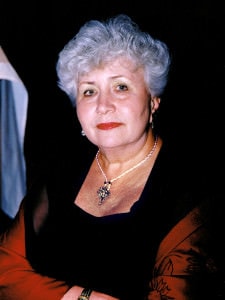
But instead of presenting these four characters’ arias and duets with synopsis-like introductions, Ms. Danchenko-Stern employed the very creative device of presenting the selected music in the correct order of the opera, then filling the gaps with actual spoken verse from Pushkin’s original literary masterpiece in English translation. Besides providing an intriguing mix of sung and spoken artistry, the verse readings gave plot details for the music just before and after it.
The end result was a condensed but fully integrated and comprehensible concert presentation of the entire story of the opera, all accomplished without intermission in an hour and a half, and without the need for intrusion of English surtitles to translate the sung Russian libretto.
Tchaikovsky’s opera shifts the center of gravity of the original Pushkin story of a rather rootless and cynical playboy to the character of Tatyana, a reserved country girl who Onegin meets when he accompanies his friend Lensky on a visit to Lensky’s fiancée, who happens to be Tatyana’s bubblier and more free-spirited sister Olga. Telescoping the plot of the Pushkin masterpiece, as many operas (and musicals for that matter) do with their literary sources, the opera essentially treats Tatyana’s torment at falling madly in love with Onegin, being rejected when Onegin pompously explains he can’t commit to anyone, eventually marrying a prince, and encountering Onegin years later who then falls madly in love with her and begs her to leave her rich husband, which she reluctantly but firmly refuses to do.
With Tatyana a signature role for global operatic superstars like the Russian Anna Netrebko and the American Renée Fleming, it’s a big undertaking in any environment, but lyric soprano Yana Eminova was up to the challenge. Ms. Eminova has a luminous voice that nicely fit the warm acoustics of the concert venue, which happened to be concert hall of the French Embassy on Reservoir Road in Georgetown. Ms. Eminova effectively presented the main part of the opera’s “letter scene,” in which Tatyana sings what she has written beseeching Onegin to take her into his arms despite her own shame and fear in declaring herself.
But much of the glory of Tchaikovsky’s Eugene Onegin is that it is far from the typical and sometimes eye-rolling “tenor and soprano” operatic love entanglement, and instead pairs a hearty and somewhat threatening baritone with the lyric soprano, and adds a colorful and humorous mezzo line in the person of the sister role who teases Tatyana to loosen up. From where I sat, Ms. Eminova’s voice really showed to best effect when joined with baritone Timothy Mix as Onegin and mezzo-soprano Magdalena Wór as the sister Olga.
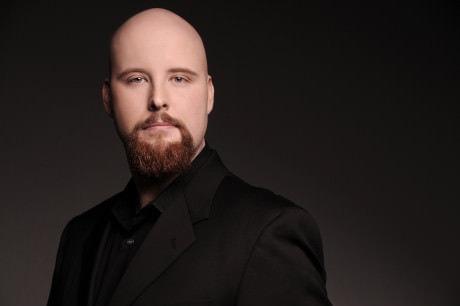
Mr. Mix’s baritone combines a fundamentally round tone with a pleasing and characterful slight grain that lends an unusual impression of full credibility even to lyrics that are far from contemporary mores or expressions. Mr. Mix’s commanding appearance and natural stage presence don’t hurt him either in landing roles like this, either on concert dates or in fully staged productions of operas like Madame Butterfly and La Bohème around the country.
Ms. Wór, a popular performer around the Washington area, expanded her familiar rich and chocolatey mezzo tone to some very effective leaps to higher ranges laced with almost girlish glee. In both the case of Mr. Mix and Ms. Wór, when singing together with or even simply alternating with Ms. Eminova’s Tatyana, the effect appeared to be to further warm up and amplify Ms. Eminova’s tones.
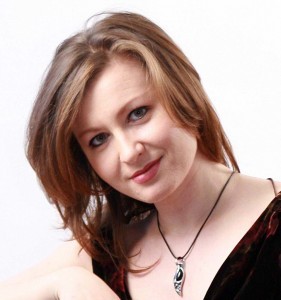
It’s also a point of pride for the RCAS that its selected performers for each of its events over the course of the season always seem to include a mix of ethnicities who nevertheless are equalized in their Russian diction. That was the case here, with the native Russian Ms. Eminova, the native Pole Ms. Wór, and the native-born American Mr. Mix (although he identifies as Finnish-American) all up to the distinct sound of Russian, in which Tchaikovsky’s vocal music is frankly hard to imagine any other way.
Behind the scenes, I hear that Ms. Danchenko-Stern, who also teaches at Baltimore’s Peabody Institute and is Russian diction coach for the Washington National Opera, is quite detailed and strict on this matter! That was confirmed at the gala dinner following the concert in a delightful conversation I had with several of Ms. Danchenko-Stern’s very enthusiastic Peabody students (including one young man from China) who were special invitees.
Also appearing in the concert opera was one of the RCAS’s most distinctive repeat performers, Timur Bekbosunov, who practically defines the word “eclectic” in his interests in opera, pop and experimental music, and stand-up comedy (and who I should note appears to be rebranding himself as simply “Timur” without his last name). Portraying Lensky, the fearless Mr. Bekbosunov – whoops, make that Timur – took literally a line in Pushkin about Lensky having strand of hair off one side of his forehead and appeared precisely that way with full theatrical commitment.
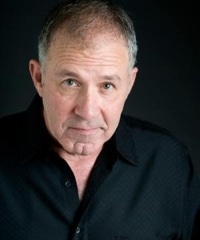
But the big surprise contribution to the evening came from veteran Washington actor Rick Foucheux as the narrator of the Pushkin verse interludes. The potential preciousness of this device was gratefully absent here, as Mr. Foucheux rode perfectly along with the joys, uncertainties and sorrows of the characters’ movements from youth to maturity. Handling most of the Tchaikovsky orchestration reduced to sometimes frighteningly finger-breaking pianistics was Moscow-trained pianist Genadi Zagor, who is now at Michigan State University.
Running Time: 90 minutes, with no intermission, followed by a buffet dinner and further entertainment by the cast.
Opera Magic: Highlights from Eugene Onegin was presented by the Russian Chamber Art Society on Thursday, October 20, 2016 at La Maison Française, The Embassy of France – 4101 Reservoir Road, in Washington, DC. The next RCAS event is “Duet Delights,” also at the French Embassy, on Thursday, December 8, 2016. For a complete schedule and other information on the Russian Chamber Art Society, see their website.




